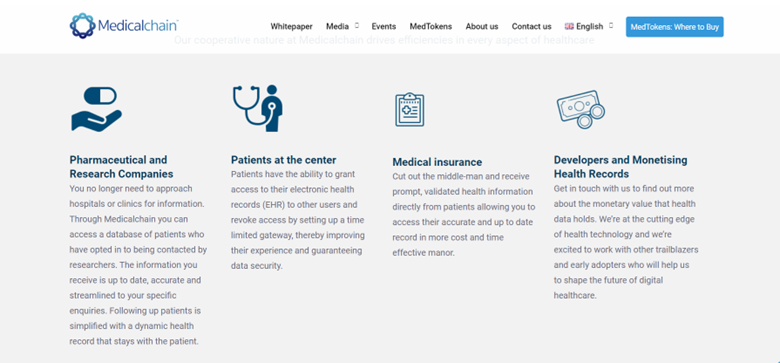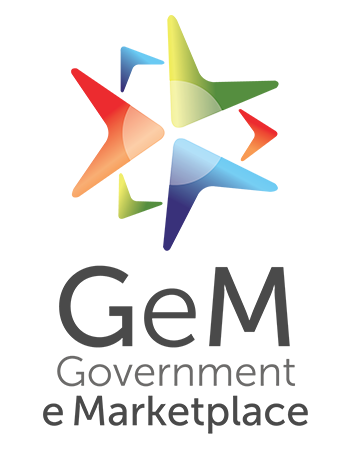Besides soaring costs, the healthcare sector is faced with a host of other issues such as data sharing, management, and security. Most patient information is stored in central servers leading to silos of data that cannot be accessed by healthcare providers when required.
Moreover, data breaches and cyberattacks keep plaguing the industry and patients are often denied full ownership of their health records and sensitive information. However, the use of blockchain to power healthcare workflows is providing potent and effective solutions to these concerns.
As more and more healthcare organizations are counting on blockchain development services, we are exploring the various challenges and benefits of incorporating blockchain technology in the medical field and some of its real-life applications.
Table of Contents:
1. An Introduction to Blockchain Technology
Blockchain technology is the process of maintaining a distributed and unalterable ledger of transactions and digital assets. There can be physical assets like real estate, and non-physical ones such as patents, copyrights, or cryptocurrencies.
To put it simply, each transaction is stored digitally in a ‘block’ that is connected to the previous and next, in the form of a ‘chain’ – hence the term, ‘blockchain’. In a blockchain-based system, it is impossible to tamper with the contents of a block as any change requires the approval of all the users within the network.
The emergence of blockchain in healthcare has remodeled the entire industry, providing new levels of transparency, interoperability, and security. It is helping tackle serious healthcare concerns like patient data management, supply chain operations, data security, clinical testing enrollment, and the like.
Blockchain development companies are being highly sought after not only by big hospital chains but also by clinics, dispensaries, diagnostic centers, pharmacies, and insurance providers. Let us look at some of how blockchain is being used in the healthcare industry.
2. Applicability of Blockchain in Healthcare
While the applications of blockchain in finance duly overshadow its role in other sectors, healthcare is one industry that is undergoing rapid innovations with the help of this technology. The global market for medical blockchain applications is projected to hit a whopping $55.83 billion by the end of 2026.
Leading healthcare providers are investing in blockchain app development for medical processes to solve existing issues and find new ways to improve their services and productivity.
2.1 Understanding the Challenges in Healthcare
The field of healthcare is facing new developments that pose challenges to medical service providers, irrespective of size. The most notable ones include:
Data Security and Privacy – While the injection of malware, data breaches, and other cybersecurity risks are nothing new to the healthcare sector, attacks on sensitive patient health information (PHI) remain the single most alarming concern to hospitals and medical facilities.
Data Silos – Data silos are sets of raw data that can be accessed by only some users but are isolated from the other stakeholders in the organization. In healthcare, data silos can cause patient records to be fragmented across different departments. This makes it extremely difficult for doctors to get a comprehensive and real-time view of the patient’s present condition and medical history.
Invoicing and Processing of Payments – It is often painstaking and expensive for medical institutes to set up fast and foolproof payment and invoicing systems in-house. It requires them to negotiate terms with the payment processing services (banks and other finance organizations) and develop the required infrastructure. Apart from this, they also need to meet the recurrent expenses of maintaining these technologies.
Counterfeit Drugs – Fake drugs are not only a major life risk for patients, but they are also a major hindrance to the medical industry, costing the global economy billions of dollars each year. Blockchain can be used to tackle this problem by tracking the journey of each drug from the lab to the patient.
Patient Experience – With each passing day, healthcare service providers are facing greater competition in drawing in and retaining patients. People are demanding an experience at par with the quality of customer service they receive from other consumer brands.
[Also read: How Is Blockchain Reshaping the Future of Mobile App Development]
2.2 Blockchain in Health Care – Main Benefits
With the aforementioned challenges sending medical expenses through the roof, a cost-efficient alternative that does not compromise the quality of healthcare facilities has become the need of the hour.
And, the integration of blockchain into the medical field is proving to be just that. Blockchain-based software and mobile app development for healthcare is breaking new ground in the sector.
With new levels of transparency, security, and efficiency, blockchain is already taking major steps toward reining in the excessive surge in medical expenses and making healthcare more productive. Here’s a look at the key benefits of implementing this technology in health and wellness services.
For Healthcare Institutes
The use of blockchain-powered applications enhances the decision-making process especially in critical cases as several doctors from separate locations can view the same data simultaneously.
Blockchain also makes the collection and maintenance of patient health records more streamlined and tamper-proof as it is a decentralized ledger that can be accessed by all its stakeholders. Moreover, it also speeds up medical credentialing and the formulation of case histories.
For Patients
With unforeseen levels of security, blockchain also guarantees patients full ownership of their health-related data. The smart contracts have built-in consent mechanisms that do not allow organizations to acquire information without permission.
Blockchain also lets patients take an active part in health research or otherwise capitalize on their data without the involvement of intermediaries. Moreover, data from wearable devices like smartwatches and health trackers can also be collected and stored securely.
For Medical Research
Blockchain-powered systems can access huge volumes of data and help to sign up suitable and willing individuals for clinical trials. Because of its immutable nature, it also enables efficient and reliable documentation of these trials and experiments.
For Insurance Providers and Procurers
The utilization of blockchain also helps insurance providers by speeding up the processes of registration, verification, and confirmation. Medical insurance companies can also declutter their operations by drafting and managing agreements by automating them with smart contracts.
These self-enforcing contracts are also efficient in detecting irregularities and illegal activities and curbing insurance fraud. Apart from these, it also reduces overall insurance costs and premiums by cutting out third parties and middlemen.
3. Use Cases of Blockchain in Healthcare
From electronic health records and telemedicine to automated insurance claim settlements, you can develop a blockchain-powered healthcare application for every workflow of hospitals and medical facilities.
By introducing enhanced security, transparency, and interoperability, blockchain holds the potential to revolutionize the healthcare sector within the next few years. Some of the most effective applications of this technology in the medical field are as follows.
3.1 Drug Traceability and Supply Chain
The timely supply and delivery of medical goods and drugs is one of the leading concerns of the healthcare industry. Blockchain software development for tracking goods from the manufacturing plant or lab right up to the point of delivery gives customers full confidence in the medicines they are buying.
This is especially needed in developing economies where counterfeits of prescription drugs are responsible for thousands of deaths. It also helps in the cold chain management for drugs and vaccines that have to be stored and transported within the temperature range of 2°C (35°F) to 8°C (45°F).
With IoT-powered sensors installed at every point of the cold chain, all users within a blockchain can access real-time data and send alerts if there are any breaches in the cold chain.
Example:
Mediledger is an apt example of a blockchain-based network that allows manufacturers and dealers of prescription drugs to monitor their transit process and delivery. It also helps to keep track of metrics like requirement volume, date of manufacture/expiry, and so on.

3.2 Patient-focused Electronic Health Records (EHRs)
Medical service providers around the globe are facing the problem of data silos, which means that patients and healthcare experts have a partial view of medical records. Deploying a blockchain-driven system for storing medical records can provide major solutions to this concern.
This record can be linked to the facility’s existing electronic health record (EHR) software and act as an all-encompassing and single view of a patient’s history.
However, it is crucial to make sure that the actual data of the patient does not go into the blockchain. Instead, each record that gets added to the chain (prescription, doctor’s note, or test result) should be translated into a unique block function in the form of an array of numbers and letters.
Each hash function has a distinct identity and can only be decoded if the one who owns the data – the patient, in this case – gives their consent. Every time an alteration is made to a patient record, it is demarcated on the blockchain as a transaction.
Example:
Medicalchain is a US-based company that works with healthcare providers helping them to utilize blockchain-enabled EHRs. This allows institutes to collect the most comprehensible and trustworthy version of health records directly from the patient.

3.3 Smart Contracts for Research and Clinical Trials
Among several other critical issues, the COVID-19 pandemic showed us the importance of foolproof medical research and time and cost-efficient clinical testing. Medical research is integral in the study of diseases, causative organisms like bacteria and viruses, and the formulation, testing, and production of new drugs and vaccines.
A recent AMIA Annual Symposium study revealed that around 86% of clinical trials fail to recruit the desired number of subjects who meet the testing criteria and that about 19% of trials are discontinued as they cannot enroll enough participants. This results in heavy losses for the healthcare industry and hinders further progress.
Today, Ethereum-based systems are being deployed to facilitate the recruitment process for clinical trials by using smart contracts. The system consists of two modules of smart contracts:
- Identifying potential subjects based on the metrics for inclusion and exclusion.
- Managing enrollment of participants, overseeing the workflows of the trial, and monitoring future trials.
Example:
Block Trial is a prototype blockchain-powered platform for monitoring and managing clinical trial data. The entire process is automated with the help of smart contracts to collect transaction records instead of storing actual clinical data. Each interaction between the researchers and the participants is integrated as a smart contract and stored automatically in the Ethereum-based blockchain.
[Also Read: How To Develop A Great Mobile App: An Ultimate Starter Guide]
3.4 Data Security and Management
Since most health data is recorded in centralized databases, it is often vulnerable to cyber attacks and breaches. This could include sensitive information such as patient health records, insurance documents, case histories, personal data, and so on.
The Health Insurance Portability and Accountability Act of 1996 (HIPAA) lays down clear regulations for the creation of and adherence to national standards to shield patient health data from being disclosed without their knowledge and consent.
To that effect, most healthcare providers are working closely with a blockchain development company to implement this technology into their work processes and ensure that sensitive patient information is secured from unlawful activities and cybercrimes.
Blockchain is ideal for security applications as it can keep decentralized, transparent, and incorruptible records of all patient data. Besides being immutable, blockchain-powered systems are also private.
All of the information collected is encrypted and if medical service providers want to access patient data, they need its matching public key to decode it.
Another security use of blockchain is its role in supporting wearable health devices. Blockchain-based systems promote safe recording and transmission of data from IoT devices to healthcare professionals. It can shield data against unauthorized access and shut down the nodes whose security has been compromised.
Example:
The BurstIQ platform enables healthcare organizations to manage huge volumes of patient data. Its blockchain-driven technology allows the safekeeping, sharing, and licensing of data while complying with the latest HIPAA guidelines and regulations.
Akiri is another network-as-a-service framework that helps in data management without physically storing any data. It uses smart contracts to set policies and configure layers of data while authenticating its source and destination in real time.
3.5 Cryptocurrency Payments
Efficient payment processes and the prompt settlement of insurance claims are essential for the smooth functioning of any healthcare institution. Insurance fraud is one such issue that has been plaguing the entire sector for years.
The integration of blockchain technology and cryptocurrency payments for medical services is providing much-needed relief in this department. With more and more health organizations enabling cryptocurrency payments and transactions, it has become much easier to tackle fraudulent claims and transactions.
Each crypto payment is recorded securely in an unalterable sequence of tamper-proof blocks accessible to all users within the system. Each change, omission, or addition within a block has to be approved by all users in the blockchain and will be recorded as a new block.
This makes it close to impossible for miscreants and hackers to tamper with transactions with data breaches or malicious code injections.
Example:
Aveon Health, a family health and diabetes care facility in Scottsdale, Arizona takes payments from patients in Bitcoin, the largest and most popular cryptocurrency by market capitalization. This option ensures secure blockchain-powered payments and recording of transactions.

[Also Read: How Blockchain Technology Revolutionizes Real Estate]
4. Challenges of Blockchain in Healthcare
Despite its numerous benefits and practical applications in the field of medicine and treatment, blockchain is still a rather new technology and is still in its developing stage. There are some areas of concern you should address before implementing this technology in the workflows of healthcare organizations. We have touched upon the most significant ones and their solutions below.
4.1 Technical Knowledge
It is not feasible for all users to have the same level of expertise in modern and sophisticated technologies such as blockchain and cryptocurrencies. Moreover, most users do not have expensive and up-to-date hardware.
For instance, an elderly lady or gentleman is not likely to use a computer that much and be proficient in it. GPUs (graphics processing units) are necessary for mining cryptocurrency which is not present in basic systems.
Solution: Healthcare providers need to make users more of the newest tech while companies selling these items or software should also try to make them as affordable to the masses as possible.
4.2 Paperless Method Adoption
A relatively high percentage of doctors still prefer to keep paper records and store them in a physical file system. Medicine shops and patients also depend heavily on physical prescriptions and are still hesitant to go 100% paperless. As a result, it is difficult to adapt to a fully digital blockchain network in a short time.
Solution: Doctors and other healthcare professionals should get used to this technology by using small blockchain applications for storing and managing prescriptions and other file records.
4.3 Cost of Integration
Blockchain is still a costly technology as it requires high-performing computer systems with the latest and most powerful GPUs. Moreover, a majority of the healthcare sectors of all countries are distributed across various institutes in different regions. Without a centralized medical system with seamless interoperability, it is quite time-consuming and rather expensive to switch over to blockchain-based applications in healthcare.
Solution: Blockchain frameworks should increase the incentive to get more and more miners engaged in the blockchain. Hospitals also need to learn to maintain blockchains to keep records such that they can be accessed easily by all parties concerned.
4.4 Privacy and Security
Since blockchain is a peer-to-peer network, each user has access to its database. However, many individuals are hesitant to disclose their medical problems and like to keep them private. This leads to inconsistencies within the blockchain network.
Moreover, blockchain-driven platforms can also fall prey to cyberattacks like the 51% attack, Sybil attack, and so on. Hackers can also target the users’ wallets to steal cryptocurrencies. The mining of unnecessary blocks and clogging up the traffic within the network for incentives is also a serious concern.
Solution: Healthcare facilities should use private blockchains where every user is authenticated by the network administrator through unique IDs.
In a Nutshell
To wind it all up, the healthcare sector has witnessed a host of massive breakthroughs that have changed its course throughout history – and the implementation of blockchain is notable among the most recent ones.
From managing electronic health records and supply chains to cryptocurrency payments, blockchain is rapidly transforming the way treatment is given, received, and paid for.
Not only limited to the medical sector, this technology is also reshaping the efficiency and security levels of a wide range of other industries and businesses.
If you are looking to integrate the latest methods and technologies into your business operations and workflows, connect with us at Webgen Technologies. Being a trusted mobile app and website development company for over a decade, we have been providing top-notch solutions powered by cutting-edge technologies like blockchain, AI, and ML, that are guaranteed to take your business ahead of the competition.
Views: 1611






